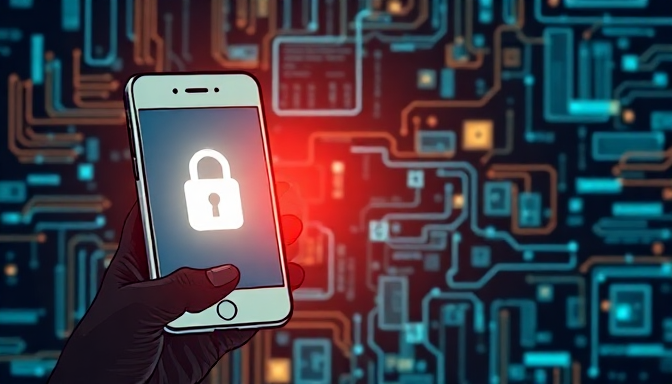
App Permissions: You Don't Need a Flashlight App That Accesses Your Contacts
Let's talk about app permissions, those little pop-ups you probably tap 'Allow' on faster than you can say 'data breach.' Every app wants a piece of your digital life, and most of us just hand over the keys to the kingdom without a second thought. It's like inviting a stranger into your house and giving them free rein to rummage through your drawers, just because they promised to tell you the weather.
Seriously, think about it: why on earth does a basic flashlight app need access to your contacts list, your photos, your microphone, or your location? Its sole purpose is to turn on a tiny light. If an app's requested permissions sound like it's preparing for a full-scale surveillance operation rather than performing its stated function, maybe hit 'Deny' and find one that isn't so nosy. Your phone is already a tracking device; no need to help the random 'SparkleLite 3000' app complete the profile.
Biometrics: Face ID is Cool, Until It's Not
Ah, biometrics. Isn't it just *magical* how your phone knows it's you just by looking at your mug? Face ID feels like living in a spy movie, seamlessly unlocking your digital life with a glance. It's the epitome of convenience, making fumbling with passcodes feel positively medieval. This futuristic tech makes accessing everything from your banking app to your cat videos incredibly fast and simple. It really is cool, until, well, it isn't.
See, the problem with relying solely on your face or finger is that these unique identifiers aren't always as foolproof as the marketing suggests. Maybe a devious twin, a surprisingly realistic mask, or even just really poor lighting decides your phone is suddenly suspicious of you. Beyond the occasional unlocking glitch, there's also the slightly unsettling reality of a device constantly scanning and storing your most unique physical traits. It adds a layer of vulnerability you might not have considered.
So while it's incredibly tempting to ditch passcodes entirely and let your face do all the heavy lifting, perhaps keep that backup method in mind. Because trusting your entire digital kingdom to a quick facial scan might just be slightly less secure than, say, writing your password on a sticky note attached to the screen. At least with the sticky note, you *know* someone has to physically peel that off to get in.
Losing Your Phone: The Mini Heart Attack and What to Do Next
Ah, the universal jolt of panic. That moment when your hand reaches for your pocket or purse, finds only air, and your brain instantly screams, "My phone!" It's a miniature, technology-induced cardiac arrest, isn't it? Because let's be honest, that little rectangle holds more secrets about you than your diary ever did, plus the ability to drain your bank account if it falls into the wrong hands. Suddenly, all those casual glances at your screen feel less like convenience and more like reckless abandonment of your digital soul.
So, once you've recovered from the initial shock and the frantic pat-down of every conceivable surface within a ten-foot radius, what's next? Ideally, you'd have already set up some basic defenses, like a strong lock screen and remote wipe capabilities. But since this book exists, I'm going to assume you haven't, or at least need a reminder that '1234' isn't a strong PIN. The immediate goal is damage control and locating the digital leash you've apparently dropped.
This isn't just about losing your connection to TikTok; it's about preventing your personal data from walking away with your device. Your phone is, after all, a highly sophisticated tracking and data-gathering machine, and losing it unprotected is like leaving your front door wide open with a sign pointing to the safe. We need to talk about the steps you should have taken *before* this happened, and what desperate measures you can attempt *after* the fact to salvage the situation and maybe, just maybe, get your digital life back.
Updates (Again): Yes, Your Phone Needs Them Too
Ah yes, updates. Just when you thought you were done clicking "Remind Me Later" on your computer, here comes that little notification on your phone, demanding attention. It's like a digital nagging parent, constantly reminding you that your pocket supercomputer is desperately trying to stay one step ahead of the bad guys. Ignoring it won't make it go away, no matter how much you wish it would.
These aren't just cosmetic changes to make your icons look slightly different, you know. Those updates are patching security holes that hackers are actively trying to crawl through, essentially boarding up digital windows and reinforcing doors. Skipping them is basically putting up a big sign that says "Free Data Here!" for anyone looking.
Your phone holds everything: your banking apps, your embarrassing photos, your location history that proves you *did* go to that questionable taco truck at 2 AM. Leaving it vulnerable by skipping updates is like leaving your actual house keys under the doormat with a note saying "Please don't steal the good stuff." Just hit the update button, please, for the love of all that is digitally holy.
